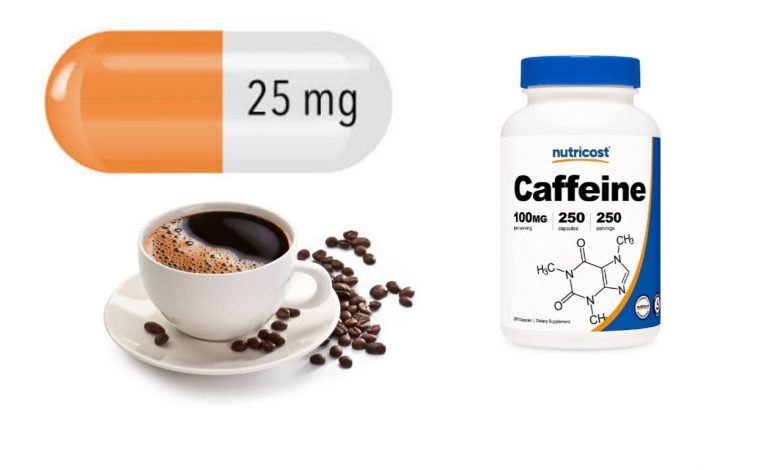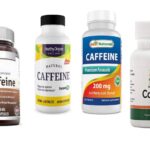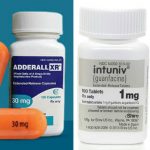What Happens When You Take Adderall and Caffeine?

Mixing any combination of prescription drugs, over-the-counter drugs or food can be unpredictable and dangerous. Most fatal overdoses involve the use of more than one type of drug (poly-drug use).
Poly-drug use is dangerous because different drugs act on our bodies in different ways. The harmful effects are magnified by using more than one drug type.
What is Adderall?
Adderall is a medication that is composed of equal parts of racemic amphetamine and dextroamphetamine. This combination medication is used to treat attention deficit hyperactivity disorder – ADHD.
Adderall works by changing the amounts of certain natural substances in the brain. Adderall belongs to a class of drugs known as stimulants. It can help increase your ability to pay attention, stay focused on an activity, and control behavior problems. It may also help you to organize your tasks and improve listening skills.
Adderall is also used to treat a certain sleeping disorder (narcolepsy) to help you stay awake during the day. It should not be used to treat tiredness or to hold off sleep in people who do not have a sleep disorder.
What is Caffeine?
Caffeine is a natural chemical with stimulant effects. It is found in coffee, tea, cola, cocoa, guarana, yerba mate, and over 60 other products.
Caffeine works by stimulating the central nervous system, heart, muscles, and the centers that control blood pressure. Once consumed, caffeine is quickly absorbed from the gut into the bloodstream. From there, it travels to the liver and is broken down into compounds that can affect the function of various organs.
Caffeine’s main effect is on the brain, it functions by blocking the effects of adenosine, which is a neurotransmitter that relaxes the brain and makes you feel tired.
Normally, adenosine levels build up over the day, making you increasingly more tired and causing you to want to go to sleep. Caffeine helps you stay awake by connecting to adenosine receptors in the brain without activating them. This blocks the effects of adenosine, leading to reduced tiredness.
It may also increase blood adrenaline levels and increase brain activity of the neurotransmitters dopamine and norepinephrine. This combination further stimulates the brain and promotes a state of arousal, alertness, and focus. Because it affects your brain, caffeine is often referred to as a psychoactive drug.
Dangers of Mixing Adderall and Caffeine
There are several ways Adderall and caffeine can get mixed up in your system if you are on the medication. Taking a cup of coffee is one of the common ways this can happen. Another route by which this interaction can occur is by taking Adderall and caffeine pills together or consuming any product containing caffeine including energy drinks and black tea while on Adderall.
Adderall and caffeine are both stimulants and combining them is not a good idea because it can be quite dangerous especially if you have pre-existing heart disease, high blood pressure, or an anxiety disorder.
Taking Adderall or too much caffeine can cause unwanted effects, including tremors (shakiness) and heart problems. A severe overdose of Adderall can cause convulsions, coma, and death, while a severe caffeine overdose may lead to convulsions and severe nausea.
How much coffee can someone ingest while taking Adderall?
The amount of caffeine that will cause these side effects is variable for each individual. In addition, individuals with additional comorbidities such as hypertension, cardiovascular disease, or anxiety disorders need to discuss with their medical professionals before combining these medications due to side effects.
While one cup of coffee is unlikely to have much effect on this medication, having multiple shots of strong coffee could lead to unpleasant side effects. A limited amount of caffeine will be tolerated by most people.
What are the possible side effects of Adderall?
Adderall can cause mild or serious side effects. The following list contains some of the key side effects that may occur while taking Adderall. This list doesn’t include all possible side effects.
For more information on the possible side effects of Adderall, or tips on how to deal with a troubling side effect, talk with your doctor or pharmacist.
More common side effects
The more common side effects of Adderall can include:
• anxiety
• constipation
• dizziness
• dry mouth
• headache
• lack of appetite
• nausea
• stomach pain
• trouble sleeping
• weight loss
These side effects may go away within a few days or a couple of weeks. If they’re more severe or don’t go away, talk to your doctor or pharmacist.
Serious side effects
Call your doctor right away if you have serious side effects. Call 911 if your symptoms feel life-threatening or if you think you’re having a medical emergency.
Serious side effects and their symptoms can include the following:
• agitated or aggressive behavior
• blurred vision
• depression
• hallucinations
• heart problems including high blood pressure, rapid heartbeat, heart attack, and stroke
• impaired or delusional thinking
• irritability
• muscle breakdown called rhabdomyolysis
• severe allergic reaction
Long-term effects
Adderall is safe to use long-term when taken at doctor-recommended dosages. For many people, common side effects such as loss of appetite, dry mouth, or insomnia are reduced with continued use of the drug. For others, these side effects may continue.
Long-term use of Adderall or other stimulants may cause some changes in the brain, such as decreases in the amount of the chemical messenger dopamine. This seems more likely to happen in people who abuse Adderall in high doses.
When Adderall is misused or abused, long-term use can lead to physical and psychological dependence. Inappropriate use can lead to many serious side effects, including:
• anorexia and unwanted weight loss
• depression
• fatigue
• heart damage
• moodiness or irritability
• severe insomnia (trouble sleeping)
• skin disorders
• symptoms of psychosis such as aggression and hallucinations.





